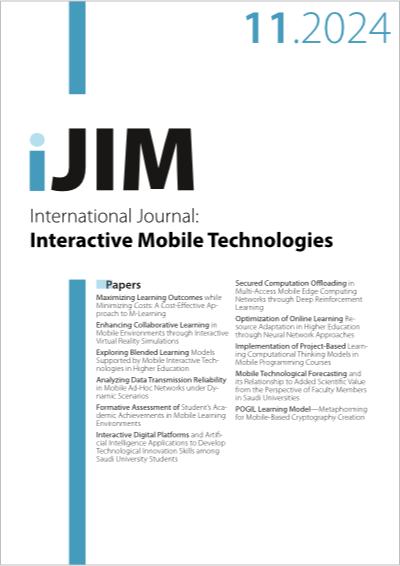Implementation of Project-Based Learning Computational Thinking Models in Mobile Programming Courses
DOI:
https://doi.org/10.3991/ijim.v18i11.49097Keywords:
Problem-based learning, computational thinking, control class, experimental classAbstract
This study focuses on investigating the integration of project-based learning with computational thinking (PjBL-CT) skills to enhance students’ proficiency in learning mobile programming. The findings of the model provide an evaluation of cognitive aspects, affective aspects in the form of 4C soft skills, and psychomotor aspects. To measure the effectiveness of the model, we will test the differences in the quality of student learning outcomes between two groups: the control group and the experimental group. The cognitive test results showed a value of 80.85 for the experimental class and 73.21 for the control class. For the assessment of soft skill 4C, student creativity aspects are superior to other aspects. Whereas for aspects of enhancing the project’s value, an important finding from the results obtained is the significant improvement in the quality of learning by incorporating computational thinking into the problem-based learning (PBL) model.
Downloads
Published
How to Cite
Issue
Section
License
Copyright (c) 2024 Ismael, Nizwardi Jalinus, Rusnardi Rahmad Putra

This work is licensed under a Creative Commons Attribution 4.0 International License.



